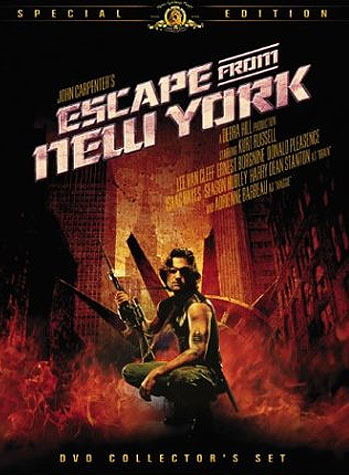 When Martin Scorsese won the best director Oscar in 2007 for The Departed, I don't think anybody thought he did not deserve the award. But was it his best movie really? Probably not, with the Oscar serving as more of a lifetime achievement for his previous five nominations in the category which he lost. So what was his best? There's a long list to choose from that includes Taxi Driver, Goodfellas, Gangs of New York, The Aviator, Mean Streets, and my new personal favorite, 1980's Raging Bull.
When Martin Scorsese won the best director Oscar in 2007 for The Departed, I don't think anybody thought he did not deserve the award. But was it his best movie really? Probably not, with the Oscar serving as more of a lifetime achievement for his previous five nominations in the category which he lost. So what was his best? There's a long list to choose from that includes Taxi Driver, Goodfellas, Gangs of New York, The Aviator, Mean Streets, and my new personal favorite, 1980's Raging Bull.Too often biographical movies take the easy way out and only show the positive aspects of the character so Scorsese goes down the complete opposite path. His portrayal of middleweight boxer Jake LaMotta is brutally honest that doesn't shy away from showing the man as he truly was and is, he's still chugging along at almost 90 years old. There are scenes so honest and real that it can be difficult to watch as LaMotta self-sabotages everything that is good in his life.
The story starts in 1941 as a young LaMotta (Robert De Niro) is tearing through the boxing circuit on his eventual climb to the middleweight crown. But with his brother/manager Joey (Joe Pesci) at his side through the ups and downs, Jake decides to get to the top on his own without accepting a helping hand along the way. His decision ends up both hurting and helping his effort. Along the way, he marries a young woman, Vickie (Cathy Moriarty), and starts a family. But through the years, both in the ring and in his personal life, Jake's demons -- especially his paranoid, overly aggressive personality -- start to get the best of him, throwing detour after detour on his path.
The sign of a good sports movie -- with Raging Bull certainly qualifying -- is that you don't have to be a sports fan to enjoy it. And while the boxing scenes are incredibly well-done and beautifully shot, it is the story of Jake LaMotta more than anything. His fights are quick, never dragging on, but always brutal in their execution. Like Peckinpah's The Wild Bunch, there is a horrible beauty to the fight. With Scorsese's decision to film in black and white (an incredibly brave but brilliant choice), Jake's story has a feel of the time it is set in, predominantly the 1940s and 1950s and gets off on a positive note from the beautiful opening, filmed in slow motion in a smokey boxing arena.
No slouch in the Oscars department himself with two wins and four other nominations, De Niro becomes Jake LaMotta for this part. He underwent months of training to make the boxing scenes look realistic -- they do -- and then packed on 60 lbs. for the scenes of a retired, post-boxing Jake. It's an incredible performance that earned him his second Best Actor Oscar, and a role that shows LaMotta for what he was...a deeply flawed individual who had problems in his personal life that ended up taking everything good from his life. Two scenes in particular stand out, both late in the movie (so beware of SPOILERS) as Jake realizes what he's done to himself. One, Jake's been thrown into prison and realizes he has hit rock-bottom. Two, the final scene as he recites Brando's famous monologue from On the Waterfront in one of the most moving last scenes I can think of, and all handled with just one extended shot.
Working with Scorsese and De Niro for the first time, Pesci hits his first major Hollywood role out of the ballpart with his performance as Joey, Jake's brother and manager. It's a more subdued Pesci -- although he does have his outbursts -- but one that counters De Niro so perfectly that it is easy to imagine the two men being brothers. They have such a strong chemistry, especially in this classic scene, that it helps make this already great movie even better. As Jake's long-suffering wife Vickie, Moriarty gives a performance that makes you question why she didn't go on to become a bigger star, and this was just her first part! Frank Vincent and Nicholas Colasanto are also good in supporting parts, but De Niro, Pesci and Moriarty are the standouts.
Lost amidst all the shuffle of great performances is that Scorsese was a great director at not only getting those performances out of the actors, but making a story that could have blah or boring incredibly visual. The black and white filming is inspired, and with cinematographer Michael Chapman, Scorsese brings his story to life. His ability is top-notch, like this impressive tracking shot, but also this family montage that shows the heart of the story. One of those movies that makes you glad movies are around. Don't know how I let this one slip by for so many years but I'm glad I caught up with it.
Raging Bull <----trailer (1980): ****/****





















